Category: The Web » Web Hosting and Services
SSH is a multi-purpose protocol for secure system administration and file transfers. It is included in every Linux and Unix system. PuTTY is the most popular SSH Connection Client, however, it is a very basic SSH Client. If you are searching for SSH with more features, here are some of the best and free SSH and terminal clients for both Apple macOS and Microsoft Windows.
Related Article 😍💰👉 10 XAMPP Alternatives – Install WordPress On Windows And macOS Laptop
What is the difference between SSH client vs terminal? SSH is Secure Shell , technically a protocol. SSH can be used interactively to enable terminal sessions and should be used instead of the less secure Telnet program. Personally I prefer the GUI SSH as clicking and dragging is much easier than typing command.
1. OpenSSH
OpenSSH is a free version of the SSH connectivity tools that technical users rely on. OpenSSH encrypts all traffic (including passwords) to effectively eliminate eavesdropping, connection hijacking, and other attacks. Additionally, OpenSSH provides secure tunneling capabilities and several authentication methods, and supports all SSH protocol versions. The OpenSSH suite consists of the following tools:
- Remote operations are done using ssh, scp, and sftp.
- Key management with ssh-add, ssh-keysign, ssh-keyscan, and ssh-keygen.
- The service side consists of sshd, sftp-server, and ssh-agent.
- Strong cryptography (AES, ChaCha20, RSA, ECDSA, Ed25519…) – Encryption is started before authentication, and no passwords or other information is transmitted in the clear. Encryption is also used to protect against spoofed packets. A number of different ciphers and key types are available, and legacy options are usually phased out in a reasonable amount of time.
- Strong authentication (public keys, one-time passwords) – Strong authentication protects against several security problems: IP spoofing, fakes routes and DNS spoofing. Some authentication methods include public key authentication, one-time passwords with s/key and authentication using Kerberos (only in -portable).
2. MobaXterm Home Edition
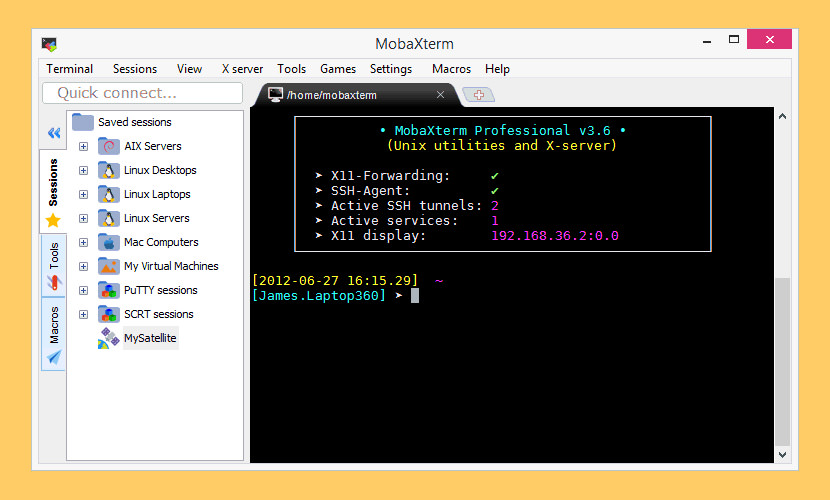
Enhanced terminal for Windows with X11 server, tabbed SSH client, network tools and much more. MobaXterm is your ultimate toolbox for remote computing. In a single Windows application, it provides loads of functions that are tailored for programmers, webmasters, IT administrators and pretty much all users who need to handle their remote jobs in a more simple fashion.
- Full X server and SSH support
- Remote desktop (RDP, VNC, Xdmcp)
- Remote terminal (SSH, telnet, rlogin, Mosh)
- X11-Forwarding
- Automatic SFTP browser
3. KiTTY
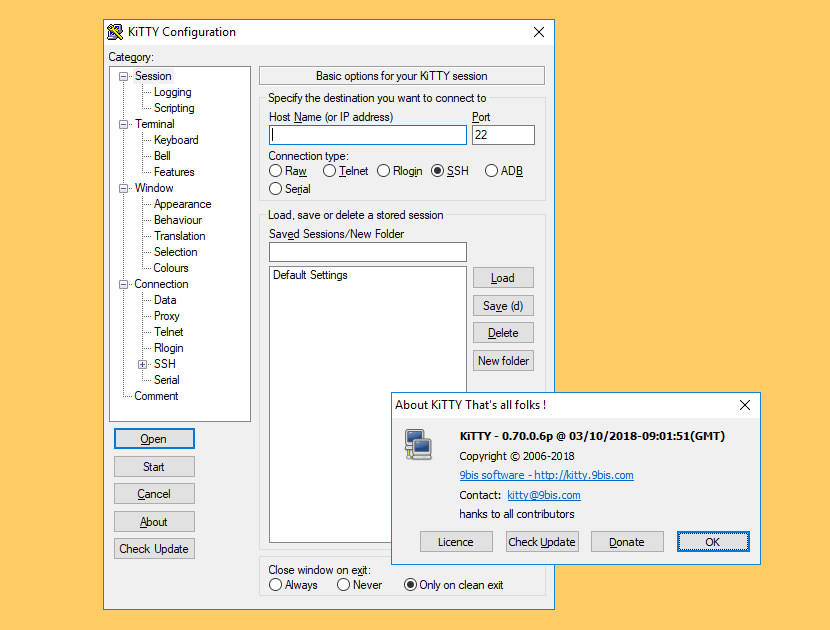
KiTTY is an open source terminal emulator, forked from Small PuTTY iconPuTTY , that adds many extra features to the original software. Some of these extra features are automatic password, automatic command, running a locally saved script on a remote session, ZModem integration and more.
4. mRemoteNG
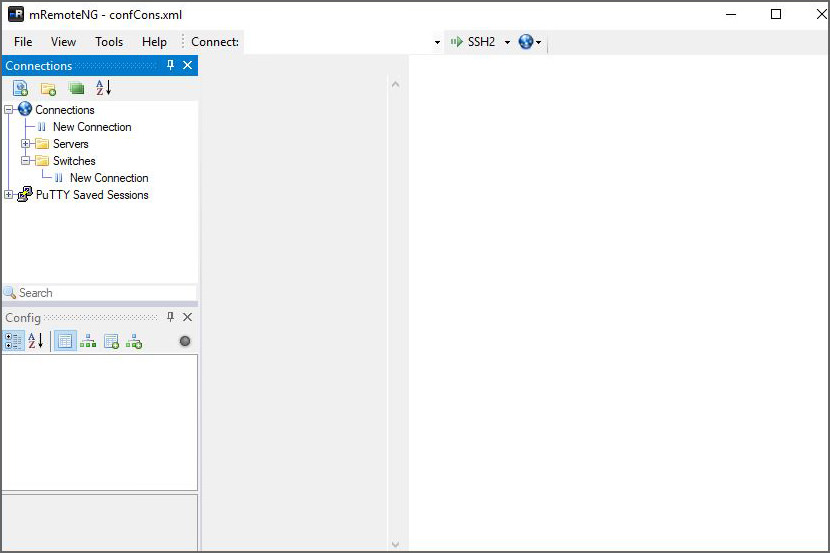
mRemoteNG is a fork of mRemote: an open source, tabbed, multi-protocol, remote connections manager. mRemoteNG adds bug fixes and new features to mRemote. It allows you to view all of your remote connections in a simple yet powerful tabbed interface. mRemoteNG supports the following protocols:
- RDP (Remote Desktop/Terminal Server)
- VNC (Virtual Network Computing)
- ICA (Citrix Independent Computing Architecture)
- SSH (Secure Shell)
- Telnet (TELecommunication NETwork)
- HTTP/HTTPS (Hypertext Transfer Protocol)
- rlogin
- Raw Socket Connections
5. Hyper
Hyper is a beautiful and extensible, cross-platform terminal built on open web standards. It provides an elegant command-line experience that is consistent across all supported platforms which includes macOS, Windows and various Linux distributions like Fedora and Debian.
The goal of the project is to create a beautiful and extensible experience for command-line interface users, built on open web standards. In the beginning, their focus will be primarily around speed, stability and the development of the correct API for extension authors.
6. Bitvise SSH Client
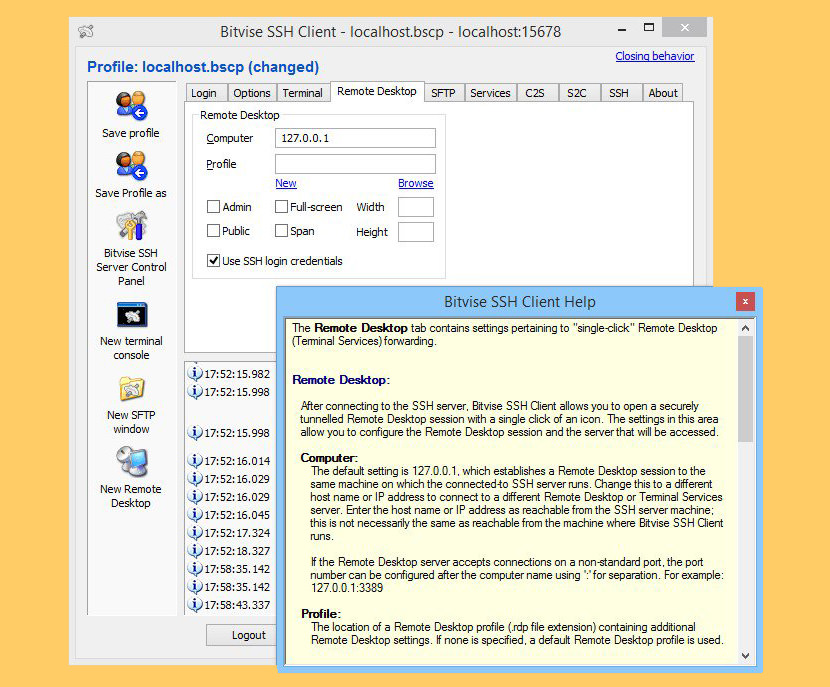
SSH client supports all desktop and server versions of Windows, 32-bit and 64-bit, from Windows XP SP3 and Windows Server 2003, up to the most recent – Windows 10 and Windows Server 2016. As for encryption, it provides state-of-the-art encryption and security measures suitable as part of a standards-compliant solution meeting the requirements of PCI, HIPAA, or FIPS 140-2 validation.
- one of the most advanced graphical SFTP clients
- State-of-the-art terminal emulation with support for the bvterm, xterm, and vt100 protocols
- Support for corporation-wide single sign-on using SSPI (GSSAPI) Kerberos 5 and NTLM user authentication, as well as Kerberos 5 host authentication
- Support for RSA and DSA public key authentication with comprehensive user keypair management
- Powerful SSH port forwarding capabilities, including dynamic forwarding through integrated SOCKS and HTTP CONNECT proxy
- Powerful command-line parameters which make the SSH client highly customizable and suitable for use in specific situations and controlled environments
- An advanced, scriptable command-line SFTP client (sftpc)
7. Termius Basic
Termius is more than a mere SSH client – it’s a complete command-line solution that’s redefining remote access for sysadmins and network engineers. Securely access Linux or IoT devices and quickly fix issues from the comfort of your couch via laptop or phone.
8. Solar-PuTTY
Manage remote sessions in a professional way. Connect to any server or device in your network with Solar-PuTTY for Windows.
- Manage multiple sessions from one console with a tabbed interface
- Save credentials or private keys to any session for easy login
- Automate all scripts you’re using when connection is established
- Find your saved session easily thanks to Windows Search integration


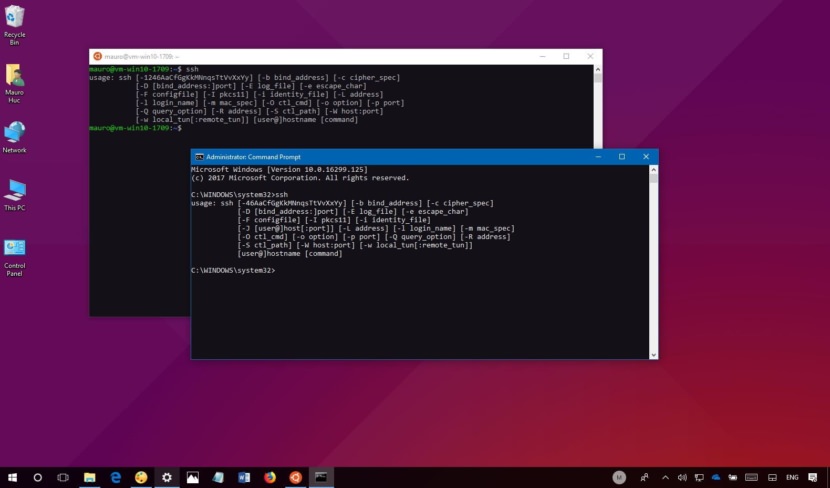
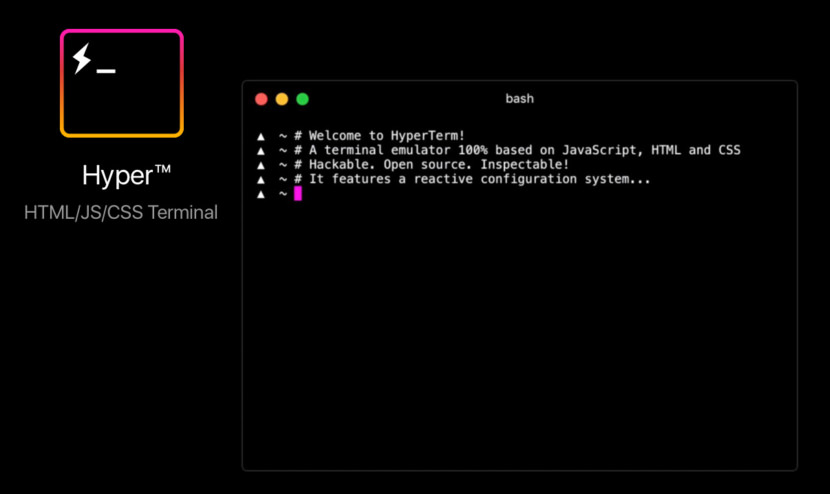
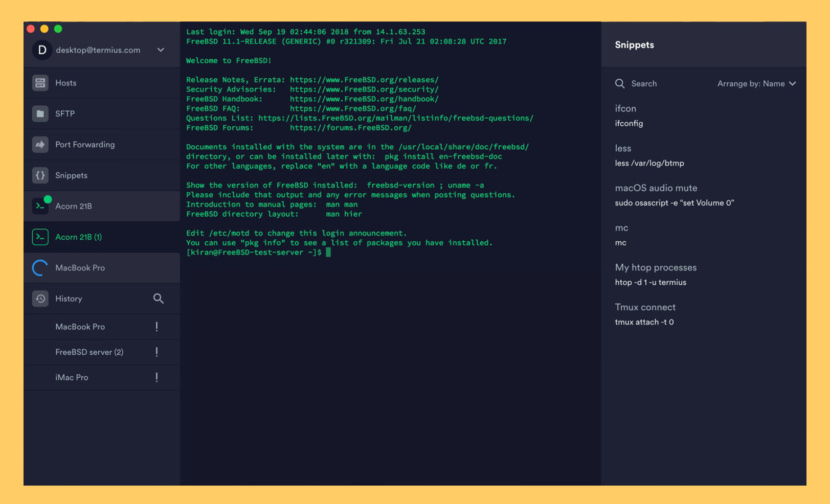
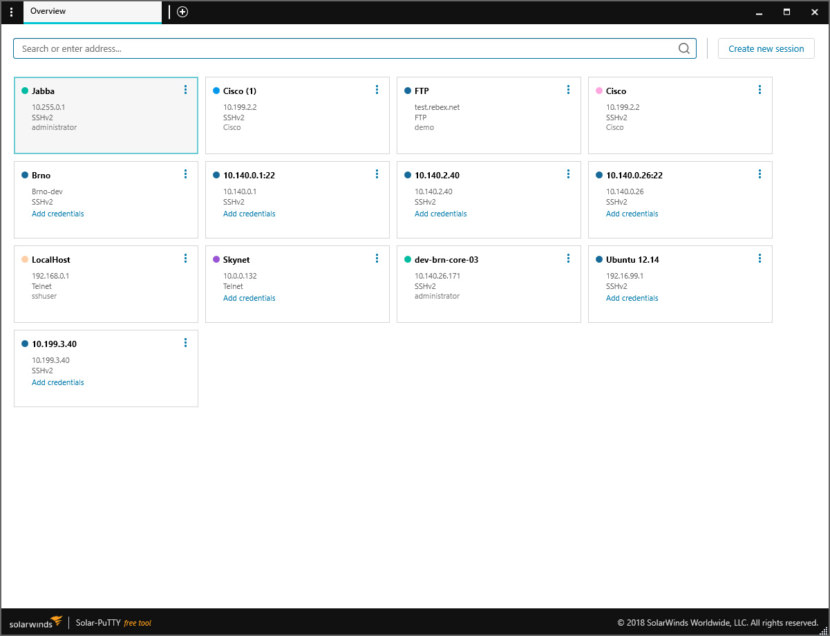

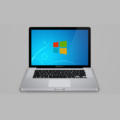


Thanks for the List. Found a nice SSH Client with Termius for MAC. Your list helped me and saved some time. Thanks & greets from germany :)
Whoever wrote this obviously has no idea what the difference is between an SSH client and a terminal. Go back to school